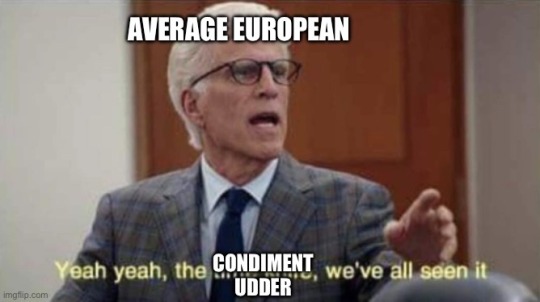Text










costume + color + scene
CHER HOROWITZ and EMMA WOODHOUSE 2/2 Clueless (1995) and Emma. (2020) adaptations of Jane Austen’s Emma | Costuming by Mona May and Alexandra Byrne respectively
2K notes
·
View notes
Text
I’m rereading Throne of Jade right now and recently read the chapter with the sea serpent, and since it’s described as having limbs with claws, I’m leaning towards a common land-dwelling (or at least only semi-aquatic), wingless ancestor. The sea serpents and bunyips would likely have split off before the common ancestor of the modern dragons started to evolve wings. The divergence of different dragon species, even wild dragon species, clearly occurred at some point after they had developed wings, because I recall the Japanese water dragons being described as having small, vestigial wings.
I think they’re probably completely unrelated to dinosaurs. Maybe they were generally quite a bit smaller in the past and evolved to favour intelligence to avoid predation by the larger dinosaurs, and after the dinosaurs went extinct, they took over many of the ecological niches the dinosaurs had previously occupied?
Temeraire fans, what are our thoughts on dragon evolution and dinosaurs?
I think that the early reconstructions of dinosaurs would look a lot different because people would be more likely to assume large skulls with sharp teeth are some sort of dragon relative. Maybe it's thought that dragons are non-avian decendants of dinosaurs but it turns out they're only archosaurs.
I also think that given sea serpents, bunyips, and dragons all seem to be from the same family, maybe they all decended from a water dwelling ancestor? Possibly something like a plesiosaur.
71 notes
·
View notes
Text
can we please please please learn to differentiate between things that are good but devalued because of their association with women (caring for children, being compassionate), things that are neutral but seen negatively because of their association with women (the colour pink, having long hair), and things that are bad but associated with women because of misogyny (being materialistic, being stupid) because otherwise we’re gonna keep getting takes like “being gender nonconforming is anti feminist” and “not studying for your classes is feminist”
58K notes
·
View notes
Text
BATTLE OF THE TERRIBLE PROPOSALS
Darcy's proposal from Pride and Prejudice:

Frankenstein's:

251 notes
·
View notes
Text

for reasons, I am researching nacho cheese dispenser options and I simply cannot express how much I hate this

173 notes
·
View notes
Text
i mean this from the bottom of my heart: no one is impressed by your loud ass car. actually we talked about it and we all want you dead.
122K notes
·
View notes
Text
Has anyone else been having issues with the dash not showing posts from people you follow? Not from accidental unfollows, just some posts not showing up. Annoyingly they will appear in the For you tab, so I have to go in there to see what I’ve missed. It’ll also show up on the blogs themselves, so this is exclusively a dash issue.
0 notes
Text
69 notes
·
View notes
Text

Hey thank fucking god for AI, amirite, otherwise where would I be in my coding journey? There's just no way I could learn how to code without answering Ai generated quizzes where sometimes all three answers are the FUCKING SAME, RIGHT??
#biting biting biting#and it sucks so much because everything else isn't ai generated and it's actually really good!!#but for some godforsaken reason they are only enforcing these quizzes#i could theoretically just click my way through the rest without actually completing the lessons#and then they make sure i haven't done that with what you ask?#AI THAT GET'S IT WRONG HALF THE TIME
0 notes
Text

Let's gossip with mama 🤭
850 notes
·
View notes
Text
It’s up to you how you decide (cooked, raw, best shape, something else)—I just want to know what you think:
(Extra credit if you also add in the notes or tags what your LEAST favorite berry is. Inquiring minds want to know!)
#almost chose raspberries but had to pick my real love#gooseberries#bet they’re only losing because people have never had them#especially sun-warmed and freshly picked from their grandmother’s garden#honestly broke my heart when she got rid of the gooseberry bush#i haven’t had them in years
3K notes
·
View notes
Text
#it’s a post about the weird ways physical therapy helps#gotta assume that’s relatable to most old people lmao
9K notes
·
View notes
Text
the biggest loss of animated movies trending towards sympathetic villains/no villains is that we dont get enough crazy death scenes anymore. stuff like tarzan's villain accidentally hanging himself or help i'm a fish's villain drowning and floating away silently on screen. sometimes your movies just need stuff to scare 8 year olds shitless. its good for the enviroment i think. probably.
#help I’m a fish mention!!!!!!#fucking loved that movie so much#and yeah the villain death absolutely ATE
7K notes
·
View notes
Text
I've been having more Pride and Prejudice thoughts, namely about Elizabeth's relationship with Lydia.
I've repeatedly come across the idea that Elizabeth is a bad sister to Lydia: that she judges her unfairly, disdains her instead of trying to advise her, victim-blames her for falling into Wickham's clutches, and ultimately abandons her.
Did these people read a different version of the book than I did? Or is this based on the adaptations? Or since everything they accuse Elizabeth of doing is really what Mr. Bennet does, are they somehow confusing her with her father?
Since when does Elizabeth never try to advise Lydia? We're told that both Elizabeth and Jane have often tried to advise Lydia and Kitty, without any success. Older siblings don't have the authority of parents, so as long as their mother encourages Lydia and Kitty's frivolous behavior and their father doesn't care, it's a lost cause. But it's not for lack of trying on Elizabeth and Jane's part.
As for unfairly judging and victim-blaming Lydia, I've been searching the text to find a place where Elizabeth does any such thing, but I haven't found it. The closest I can find is her speech as she tries to dissuade Mr. Bennet from letting Lydia go to Brighton, where she gives him a harsh assessment of all of Lydia's faults – her wildness, ignorance, vanity, flirting, and lack of any self-control – and warns him that if he doesn't check her, she'll disgrace the whole family. I do understand how some readers might call that monologue "mean." But Elizabeth isn't saying that Lydia was born that way and will always be that way. On the contrary, she's warning her father to start parenting Lydia as he should before her ways become fixed.
Elizabeth knows that Lydia is a product of her young age, her mother's spoiling, and her father's neglect. After the elopement, when Mrs. Gardiner is incredulous that Lydia would willingly live with Wickham out of wedlock, Elizabeth's explanation is that Lydia "is very young" and "has never been taught to think on serious subjects."
It's also made clear that Elizabeth pities Lydia and doesn't want her to have to marry Wickham. But she reluctantly realizes that there's no other way to save Lydia's honor or the rest of the family's. If any reader blames Elizabeth for hoping the marriage will take place and for her very bittersweet relief when it does, they're probably the same readers who hate Darcy for making the marriage happen. Never mind that Darcy tries at first to convince Lydia to leave Wickham instead, but Lydia won't listen.
The harshest thought ever expressed from Elizabeth's viewpoint toward Lydia post-elopement is when the newlyweds come back to Longbourn and Elizabeth is "disgusted" to see that Lydia has no remorse for what she put her family through. But isn't that fair?
I suppose some people will argue that Lydia has no reason to feel remorse because she "did nothing wrong." She's a "literal child," she's the victim of Wickham's predation, she believed he loved her and was always going to marry her, etc. But to be honest, I think Lydia's defenders sometimes tend to infantilize her. Is she really completely unaccountable for what happens? She's sixteen, not six, and without absolving Wickham of blame, he doesn't seem to have cold-bloodedly manipulated and seduced her the way he did Georgiana; it's implied that she threw herself at Wickham, that she was the one who wanted to elope, and since Wickham needed to flee from his gambling debts anyway, he essentially decided ""Sure, why not?" Just from living in society, Lydia should have known that running off with a man, giving him her virginity, and living with him before marriage would have threatened to disgrace her entire family. I don't think it's victim-blaming to admit that she does behave thoughtlessly and selfishly, even if we do understand that she's a product of her bad upbringing and that Wickham, Mr. Bennet, and Mrs. Bennet are more to blame than she is.
Last, but not least, since when does Elizabeth "abandon" Lydia? Do people who have only seen the adaptations assume that after Lydia and Wickham leave Longbourn, Elizabeth will have nothing more to do with her? The book makes it clear that once Elizabeth is married, she frequently sends Lydia money, that Lydia occasionally visits Pemberley too, and that while Darcy refuses to let Wickham visit, he does assist him in his profession to ensure that Lydia is provided for. How can anyone call that "abandonment"?
I understand why there's debate about whether Austen's narrative victim-blames Lydia or not. But I don't see where these "bad sister" accusations about Elizabeth are coming from.
351 notes
·
View notes
Text
My mom kept complaining that all of a sudden the Beatles are back and they're fucking everywhere and they're so obnoxious and were practically having an orgy in her garden under a cucumber leaf and that's when I realized she meant spotted cucumber beetles and not Paul McCartney
39K notes
·
View notes
Text






Pride and Prejudice (1995) + Text Posts (6/?)
4K notes
·
View notes
Text
There's something about atheism that I've repeatedly tried and failed to put into words on several posts on this blog but I think I finally got it.
Atheists are the only religious minority who, even (or sometimes even *especially*) in ostensibly progressive spaces are not allowed to ever act like they're sure of their beliefs.
#banger of a post#the notes are on fire tho#but yeah it sure is fun to hang out with my family and constantly listen to them express their beliefs while having to keep quiet about mine#or else be seen as an asshole!!
18K notes
·
View notes